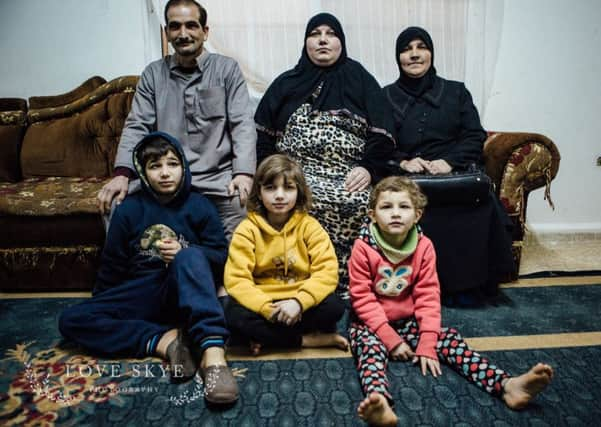Scotland helps migrants as they face a nightmare


The global migration crisis continues to dominate public and political discussion worldwide and is the focus of two major events in New York this week. The UN General Assembly Summit for Refugees and Migrants will see heads of state and government gather for the first time to come up with a blueprint for a better international response to large movements of refugees and migrants. On the margins of the UN General Assembly, Barack Obama will host the Leaders’ Summit on Refugees to stimulate global commitments out to ease the crisis.
New York will be hosting not only government leaders, but also representatives from non-profit organisations working with refugees and academic researchers from around the world, wrestling to come to terms with the unprecedented humanitarian, social and political challenges that have been brought about through the war in Syria and instability in so many other settings.
Advertisement
Hide AdAdvertisement
Hide AdScotland is playing its part not just in alleviating the suffering of those displaced from their homes, but through world-leading collaborative research that informs policy decisions and discussions taking place at the highest level.
I will be in New York presenting findings from research relevant to the crisis with researchers in the Middle-East and sub-Saharan Africa and colleagues at Yale and Columbia universities. I will be sharing three main messages based upon IGHD’s ongoing research and collaborations.
Firstly, the generation arguably most disrupted by the current crisis is youth. Clearly young children, adults, and older persons all face huge difficulties when forced to flee their homes. But for adolescents, displacement and traumas that result in missing crucial years of schooling can change the nature of opportunities for a lifetime. Getting young people quickly into school, or otherwise engaged in structured activities, has an immediate benefit.
Secondly, conflict and flight leads to rapid degradation of key public services such as the health system. People die in conflict-affected settings chiefly because of disruption of the health system, whether it be loss of doctors and nurses, damaged medical equipment or inability to access a clinic.
Thirdly, while political manipulation of religious identity is at the root of many conflicts, the religious impulse within many communities for hospitality and care of the stranger is fundamental to humanitarian efforts across the world. A major focus of my meetings in New York will be documenting, and more effectively harnessing, the small-scale efforts of local churches, mosques, temples and other local faith groups in welcoming and supporting others uprooted from their homes.
Learning how these groups work through religious and cultural differences to find common humanity with the displaced in their midst may prove key to envisioning our post-refugee crisis world.
In 2015, according to the UN, there were 244 million migrants. Many of them move without incident. However, forced displacement and large movements of people have ramifications that cross borders and the events in New York will call for greater international co-operation in finding a global solution to these challenges. Although a small nation, and removed geographically from current areas of conflict, Scotland has much to contribute that will impact on the wellbeing of millions of people uprooted from their homes and forced to flee, a nightmare most of us will only ever imagine.
Professor Alastair Ager is Director of the Institute for Global Health and Development (IGHD), Queen Margaret University, Edinburgh. His book Faith, Secularism and Humanitarian Engagement revisits the principles and practices of humanitarianism.